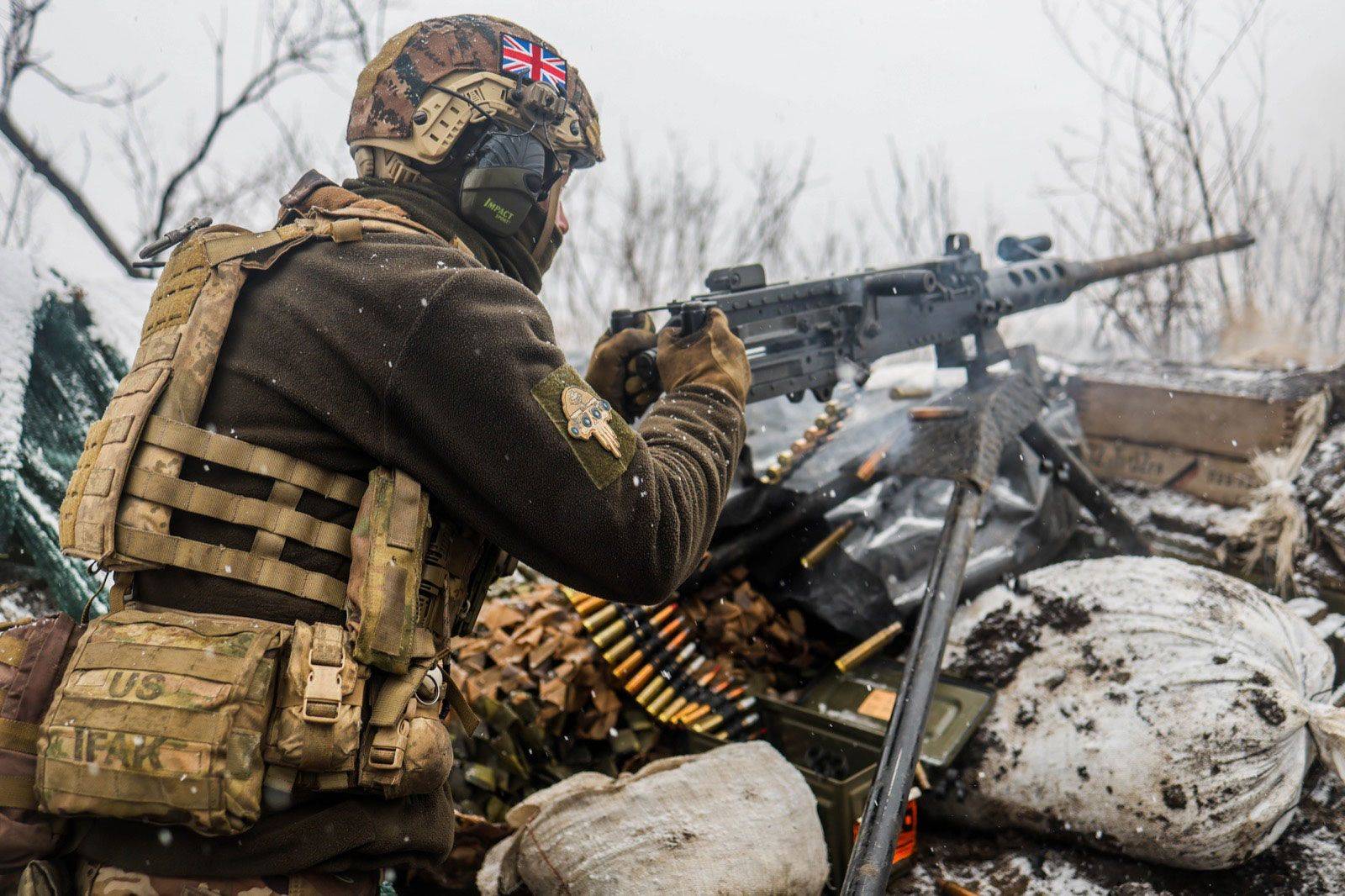I wrote this back in December 2021(!):
President Joe Biden announced he would introduce sanctions if Russia invades Ukraine. It is, of course, odd to call a country an ally but refuse any direct military assistance if she is attacked. What can we call this but an open invitation for Russia to “cancel” Ukraine?
The reality is that there is no logical reason for Russians to bother Ukraine unless one of the “red lines” is crossed. The biggest red line is Ukraine joining NATO. That realistically can’t happen. It hasn’t happened in 30 years, and probably won’t ever happen. NATO is an alliance, and an alliance is only as strong as its weakest member. Ukraine is teetering on the verge of becoming a failed state, making talks of her joining NATO in 2021 are just as fruitless as they were in 2020, 2019, and all the years before that. Ukraine’s odds of joining the EU are perhaps even lower. As the poorest country in Europe, joining the union would be a one-way relationship. Ukraine would qualify for massive amounts of aid, but be unable to offer much in return. Furthermore, Ukrainians would enjoy open borders with the West. Would Germans appreciate millions of Ukrainians flooding into their country looking for jobs and social benefits? Unlikely. All that leaves Ukraine as little more than a chess piece to provoke the Russians.
So-called “nation-building” has proven to be a failure. So now, the West seems to enjoy deliberately creating failed states in and around Russia’s sphere of influence. See my earlier post about Afghanistan.
This leaves another question on my mind, which I have asked before, but still don’t have a clear answer. Why is our government so obsessed with Russia?
At the time I wrote this I was skeptical – more than skeptical, I was incredulous – at the idea Russia would risk a direct military intervention to solve the Ukraine problem. Though in hindsight, it seems not only was intervention the only way to solve the problem, it should have been done much sooner. The Ukrainian armed forces are far better trained, armed, and radicalized than 8 years ago. We could play “what if” all day, but it’s more important to focus on the situation at hand. And to do that properly, we need to look at the chain of events that got the world here.
First, as I noted in the post quoted above, look at how coy Biden and company were about the idea of providing direct assistance to Ukraine. Imagine, if Biden had played his hand differently. What if (I know) he had stated from the beginning that if Russian troops crossed the border into Ukraine, the USA would provide tens of billions of dollars in aid, including Abrams tanks, Patriot missile batteries, aircraft, and the full might of NATO’s intelligence gathering assets? Really, we have to acknowledge the elephant in the room, Biden was being deliberately dishonest. These apparently incremental escalations in support for Ukraine were probably not spur of the moment, but planned from before the Russians’ special military operation even started.
There are, I think, two obvious reasons for his dishonesty:
The first and perhaps most obvious reason is the NATO establishment wanted to feign weakness. If you want to trick your enemy into a costly and counterproductive attack, you don’t want to be too obvious about it. You pretend that it’ll be easy and fairly low-risk. You reveal the full extent of resources you’re willing to commit only after your enemy has crossed their Rubicon. This isn’t even a new strategy. The USA did this to Imperial Japan in WWII, the communists in Korea, and Saddam Hussein in Iraq (twice!).
With that said, the second reason has to do with domestic politics. If Biden admitted from the beginning that he intended for this to be a full-scale war requiring a massive increase in American military spending, his political opponents probably would have pushed back much harder than they did. Instead, the American deep state boiled the frog, incrementally increasing assistance to Ukraine, and every step of the way downplaying it and insisting that the cost, and risk, is inconsequential.
But the risk isn’t inconsequential, is it? In a May 2022 article I wrote this:
See, we didn’t actually lose in Afghanistan because defense contractors made a lot of money. I think the idea of a capitalist conspiracy is more comforting than the alternative, that our system is broken to the point we deliberately suffer serious military defeats so some white collar executives can make money. We threw thousands of lives and billions of dollars of space-age tech at some mountains for 20+ years and still lost. There is no way to paint that as anything but a serious defeat.
I think that’s what’s going to end up happening in Ukraine. We smugly set it up as a trap to drag Russia into a bloody proxy war that drains their military capacity and treasury, but the opposite might just well happen. We’re not even three months into this and Washington is already spending tens of billions of dollars just to keep the game going for a little while.
The point of a proxy war is that it is asymmetric. The target of the proxy war, Russia, should be spending more energy to fight than we are. Instead, the opposite is happening. From what we’ve seen so far, Russia can keep this up indefinitely, while the collective West is forced to consume tens or possibly hundreds of billions of dollars just to keep up. And that’s not even touching on the economic side of the conflict.
In other words, we set a trap for Russia and then sprung it on ourselves.
Look at how much things have escalated since May. The stakes are so high now, I have a hard time believing that there is any longer a graceful way for Biden to back out of Ukraine without looking unforgiveably weak. He doesn’t have a choice but to drag this out to the bitter end. A week ago, I wrote this:
People love to ask how far Russia is willing to go, and if they are willing to use nuclear weapons. Well yes, they are willing to use nuclear weapons, and they’ve been quite clear on that point. What we should be asking instead – is Biden willing to use nuclear weapons to avoid losing in Ukraine? And to be clear, he is losing in Ukraine. His earlier offensives in the Kherson and Kharkov region cost him hundreds of vehicles and tens of thousands of Ukrainian soldiers, but failed to inflict any serious losses on the Russian armed forces. NATO has finite stockpiles of weapons and munitions and Ukraine has a finite number of men and boys who can be conscripted for the meat grinder. Sooner or later, one or both of those resources is going to be depleted to the point the conflict becomes unsustainable without directly involving at least one other NATO country.
There is the idea that the globalists will accept defeat in Ukraine like they did with Afghanistan. That’s a comforting idea, but a dangerous one, because it excuses apathy. If western voters do nothing, the war will end by itself. But what if it doesn’t?
Thanks for reading and have a great day!
Ian Kummer

Support my work by making a contribution through Boosty
All text in Reading Junkie posts are free to share or republish without permission, and I highly encourage my fellow bloggers to do so. Please be courteous and link back to the original.
I now have a new YouTube channel that I will use to upload videos from my travels around Russia. Expect new content there soon. Please give me a follow here.
Also feel free to connect with me on Quora (I sometimes share unique articles there).



The man can’t climb a flight of stairs without trippin.’ He already looks weak.
I don’t think we were ever supposed to get this far. The economic sanctions were supposed to work, sow chaos inside Russia, and prevent them from giving any serious aid to China. Presumably because they’d be fighting off hordes of angry Navalny-ites.
Our decrepit leaders likely don’t even remember what a real economy looks like; otherwise they would have realized the futility of sanctions.
hordes of Navalny-ites))). omg)
Well, planned or not, I don’t think Biden knows a graceful way to leave Ukraine..